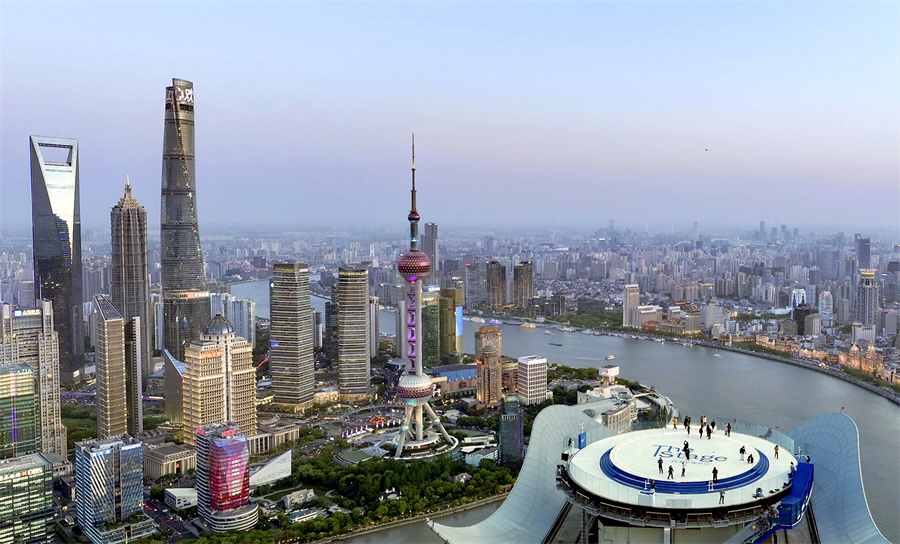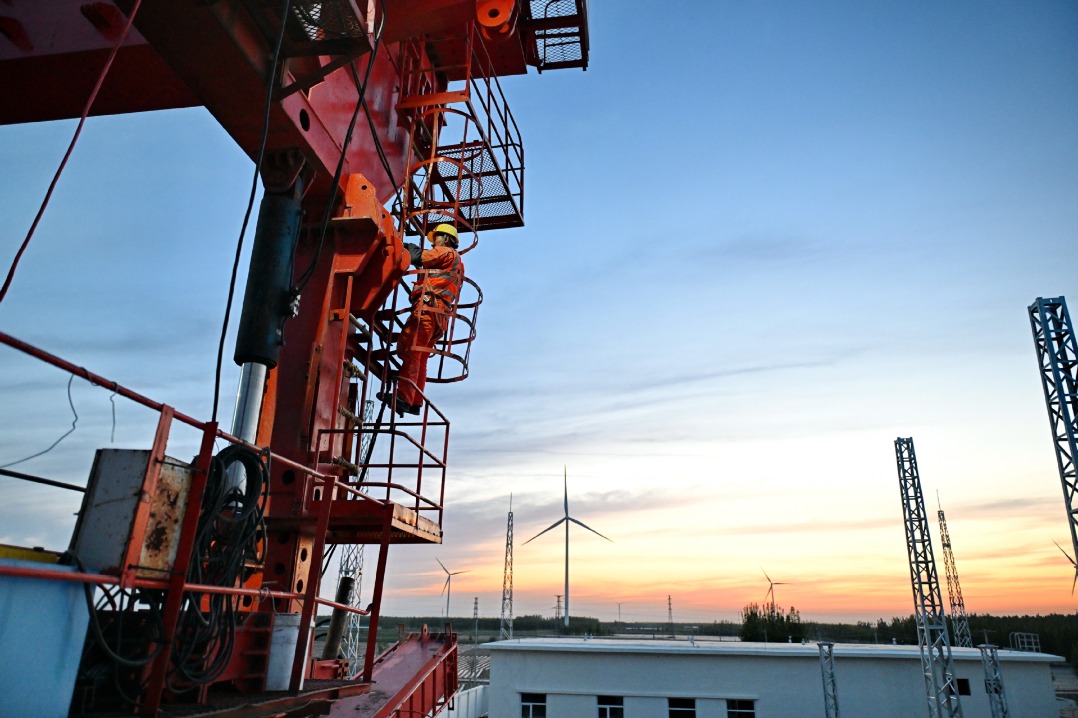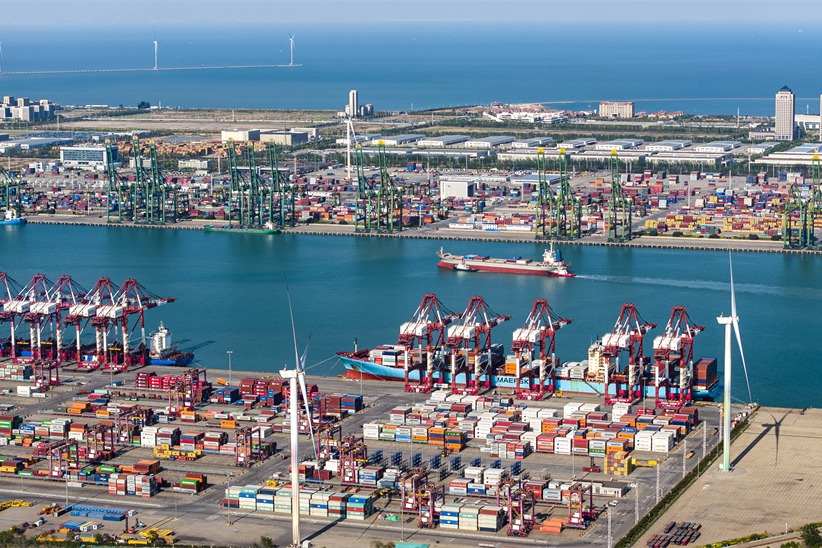An 'oasis of certainty' in a turbulent world
Foreign brands expand presence to leverage nation's vast growth and investment potential


Industry experts believe China's industrial strength and innovation drive have become key factors drawing foreign investment. At the same time, its market enhances its crucial role in the integrated development of global industries, contributing to economic growth.
During an earlier business trip to China, Jeff Williams, Apple's chief operating officer, visited the company's supplier, Goertek, in East China's Shandong province and praised its automated manufacturing and artificial intelligence technology on the production lines. Among the company's top 200 suppliers worldwide, more than 80 percent have factories in China engaging in related businesses.
China's ability to integrate industrial chains is almost irreplaceable on a global scale, whether in terms of engineer supply, industrial supporting capabilities, or scale advantages, noted Xing Ziqiang, chief economist at Morgan Stanley China.
This has attracted more and more foreign investment into the global manufacturing powerhouse and innovation hub, with Toyota committing to a 14.6 billion yuan strategic cooperation agreement in Shanghai, and AstraZeneca signing a landmark agreement to invest $2.5 billion in a global strategic research and development center in Beijing.
In Rugao of East China's Jiangsu province, welding robots are busy on the production lines of Swedish truckmaker Scania. "The Scania Rugao Industrial Hub, the most advanced and sustainable in Scania's world, will add significant capacity to Scania's global production system, easing previous bottlenecks and benefiting both the Chinese and global markets," said Ruthger de Vries, president of Scania Industrial Operations Asia.
Translating its opening-up pledge into concrete actions, China's growing economic openness spanning various sectors has further cemented its position as the world's second-largest FDI destination.
While all restrictions on foreign investment in the manufacturing sector were removed in China last year, the country has now extended its opening-up efforts to the service sector. China approved value-added telecommunications business operations of 13 foreign-funded enterprises in the first quarter, according to the Ministry of Industry and Information Technology.
The number of foreign-invested telecommunications enterprises surged 26.5 percent from a year earlier and topped 2,400 in China at the end of last month. Over 40 foreign-funded biotechnology projects had kicked off, and three new wholly foreign-owned hospitals had been approved for operation by late March, according to the country's commerce ministry.
The constant opening-up in China's service sector has brought new development opportunities to foreign-funded enterprises and injected confidence into deepening the Chinese market, said Jacqueline Jiang, chair of the Chinese mainland at John Swire & Sons. Last month, a subsidiary of the group obtained the first foreign-owned cardiovascular specialty hospital practice license in China.
In the financial sector, an increasing number of foreign financial institutions have cast a vote of confidence in China by establishing new securities entities and expanding the scope of their existing businesses in recent years, with the latest move by UBS increasing its equity stake in UBS Securities from 67 percent to 100 percent.
Despite deficits in service trade, China seeks to further open sectors like medical and internet services in a well-conceived way. Pilot opening-up programs in free trade zones and select cities have been accelerated, with wholly foreign-owned hospitals now allowed in certain areas.
According to the MIIT, China seeks to remove restrictions on the percentage of foreign capital for service businesses such as app stores and internet access in certain regions.
"In China, foreign companies can invest here because they find a good business environment, and those investments are also long-term and not only short-term," said Maximilian Butek, executive director and board member of the German Chamber of Commerce in China, the East China region.
"We have a strong business commitment here in China," he added.
XINHUA




































